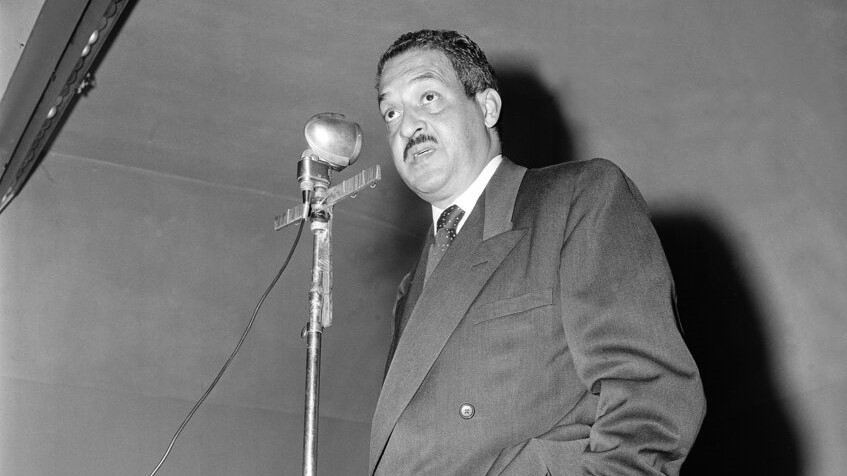Black leaders of 2024 react to Thurgood Marshall’s 1956 visit to the University of Illinois

Thurgood Marshall, civil rights lawyer and chief counsel for the National Association for the Advancement of Colored People (NAACP), speaks before the reunion of the 369th veterans' association in New York City, Sept. 23, 1956. Associated Press
January 15, 2024 is Martin Luther King Jr. Day, when we remember the life and legacy of one of America's most prominent civil rights leaders. Thurgood Marshall was the first African-American justice on the US Supreme Court. But for many years before that, he was a prominent civil rights lawyer. He argued more than 30 cases before the nation's highest Court, including Brown vs. Board of Education. In that decision, the Supreme Court ruled that separating children in public schools on the basis of race was unconstitutional.desegregated schools
On March 8, 1956, Marshall visited the University of Illinois Urbana-Champaign to talk about his work, the many cases of segregation in Illinois, and the murder of Emmett Till. The 14-year-old Chicago boy was abducted, tortured, and lynched in Mississippi in 1955 after offending a white woman. Today, a Black Studies professor and a Champaign NAACP leader reacted to hearing Marshall's speech.
GUESTS
Minnie Pearson
President of the NAACP in Champaign County
Erik McDuffie
Associate Professor in the Department of African American Studies at the University of Illinois at Urbana-Champaign

